Every Breath You Take
Veiled in smoke from the Canadian wildfires, every breath we take in the Apostle Islands right now is a burning reminder of just how connected the world really is
It wasn’t supposed to be like this. It was supposed to be glorious, the innocent perfection of an early June sunrise. There should be trumpet-blaring colors as the summer sun announces itself live and in technicolor over the eastern horizon.
Instead, there is only a pallid grayness, the colors bleached by wildfire smoke, and the sun itself reduced to a reddish-orange ball rising slowly as if reluctant to make an appearance at all.
The reason is as clear as the sky should be: Canada is on fire.
The 2025 Canadian wildfire season came on with blazes blazing - nearly 160 active wildfires even before Memorial Day, many of them centered in Manitoba, Ontario, and Saskatchwan. More than 80 of those blazes in Manitoba alone have been classified as “out of control” prompting evacuations of at least 17,000 residents and two deaths.
Scott Moe, the Premier of Saskatchewan, told the BBC recently, “The conditions that our northern residents, communities and wildland firefighters are facing today are as severe or quite likely unlike anything we have faced in quite some time, if not ever."
And where there’s fire, there is smoke, and lots of it.
The worst fire season Canada has ever experienced came in 2023. In that torch-bearing season as many as 400 out of control wildfires spewed seemingly-endless columns of smoke into the atmospheric winds barreling down across the border and into the United States, blotting out the usually clear skies of places like the Apostle Islands for weeks on end.
Ironically, I am floating this morning aboard the Little Dipper in exactly the same spot where I watched many of the smoke-tinged sunrises of that ill-fated 2023 wildfire summer. The sky does not seem quite as thick as those mornings, my eyes sting a little less, but already the state of Wisconsin has issued an air quality alert for our region and beyond, the sun still rises like the blunt end of a burning cigar, and the lessons to be learned burn red hot.
As the Little Dipper drifts in the grayness wreathed in smoke from wildfires in another country and hundreds of miles away, it is impossible not to think about how environmental factors like wildfire smoke and climate change care nothing about international borders. Each breath is a taste of fragility and a reminder of a simple, yet profound truth: like it or not, everything is tied to everything else. Even the islands are not “islands” immune from the threats. We are all connected.
Climate experts believe that what we are experiencing this summer may become the new normal. As the Earth continues to warm, what is happening now in Canada will become a regular occurrence rather than an anomaly. Soaring temperatures, drought and stronger winds are spawning wildfires that burn faster and stronger than they have historically. In the new normal, the whole idea of a “wildfire season” may itself become outdated with the potential for fires raging year-around. The fires themselves will grow bigger, stronger, less controllable. The intense heat will push the smoke columns higher into the atmosphere catching stronger winds and therefore traveling even greater distances. To the Apostle Islands and beyond.
Once I thought perhaps I could blissfully ignore things like wildfires. Those were in other places, sometimes even in an entirely different countries. That was “over there.” I could read about such things in my morning news feed, shake my head in consternation, and then shrug it off as I slipped the lines at the marina and steered the Little Dipper up the West Channel and into the islands where, surely, such things could never reach. I could ignore it all and just write about wildlife and northern lights and beauty.
Then I took a breath.
Every breath this week, each photograph of yet another red rubber ball sunrise, should make it painfully obvious that climate change-fueled wildfires and their effects will go well beyond the boundaries of the lands scorched by the flames. The skies grow heavy with smoke and dread.
As such episodes become more and more common, some experts predict a litany of ill effects to human health for all who live and breathe and boat beneath the plumes. One health expert advised that people “forgo outdoor activity” in response to the wildfires and the resulting smoke. What kind of life will it be when we can no longer hike or paddle? When we can no longer walk a beach? When I can no longer steer the Little Dipper into the islands with nothing more than a search for beauty on my mind?
We can no longer look away, shrug it off. Like it or not, we are all connected, tied and bound by twisted ropes of smoke from wildfires burning half a continent away. There is no escaping it. It is a burning problem, one that we must solve together because we are all in this together. That is a lesson we should be learning this summer with every breath we take.
— Jeff Rennicke (all photography by the author unless otherwise noted).




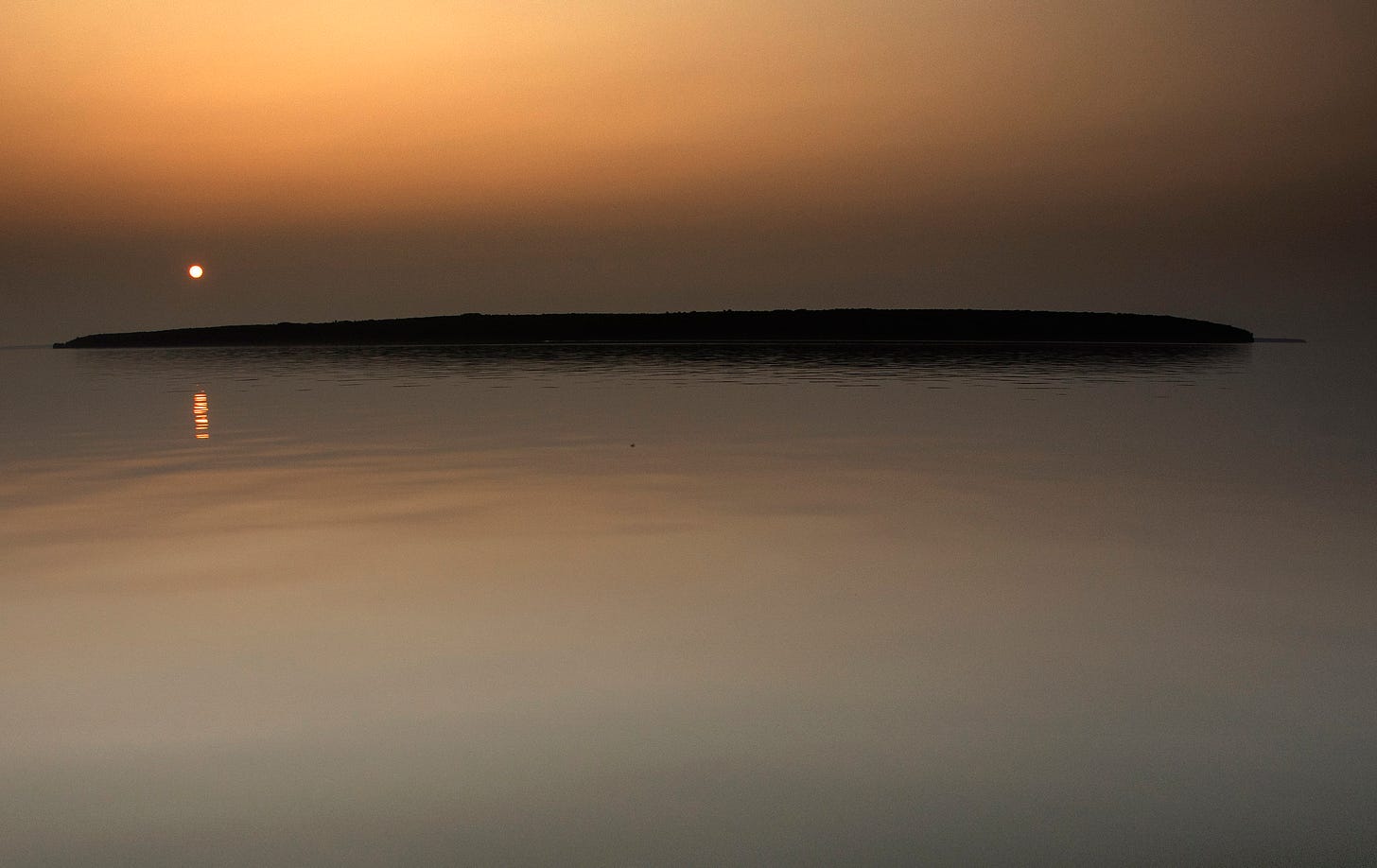

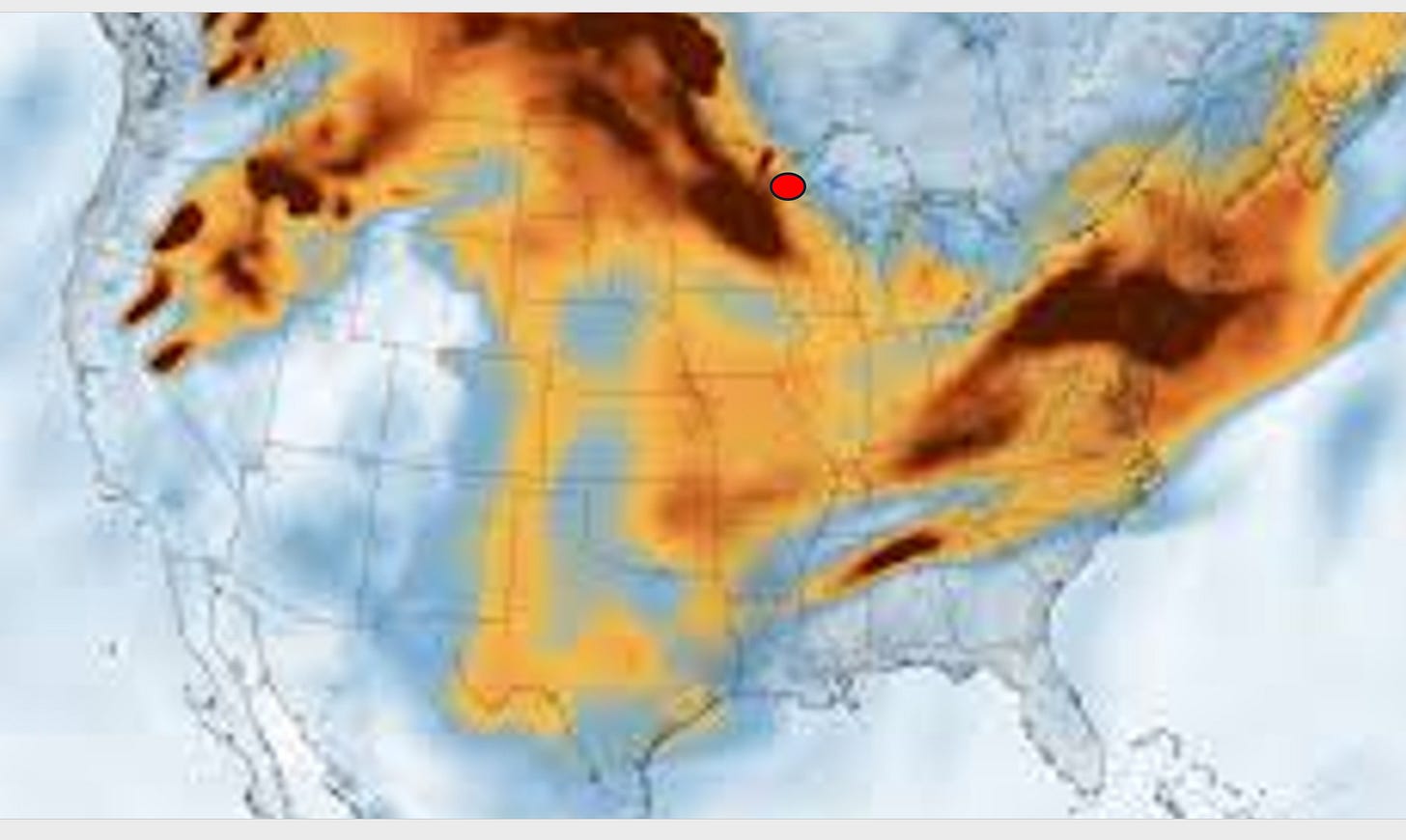
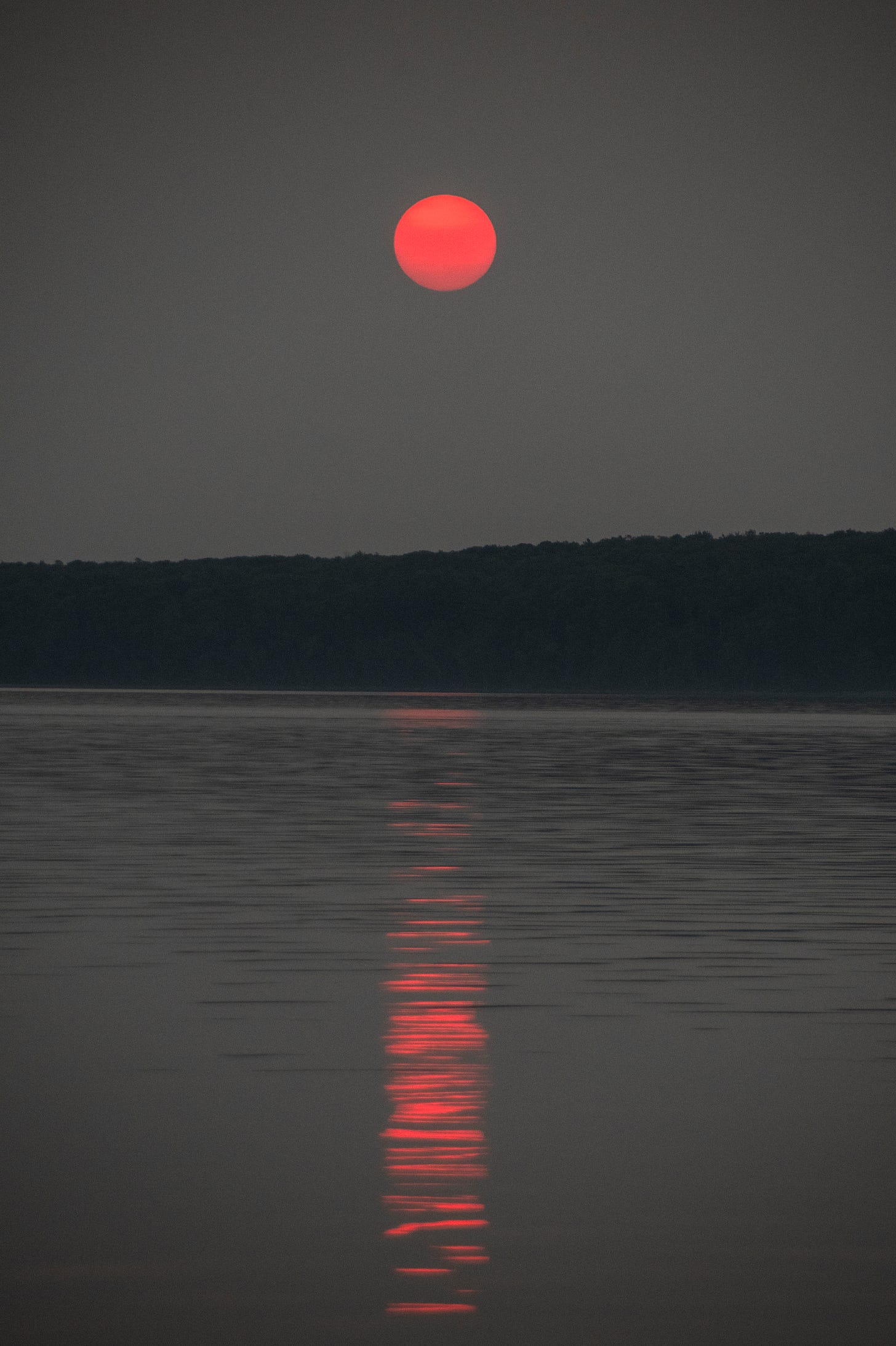
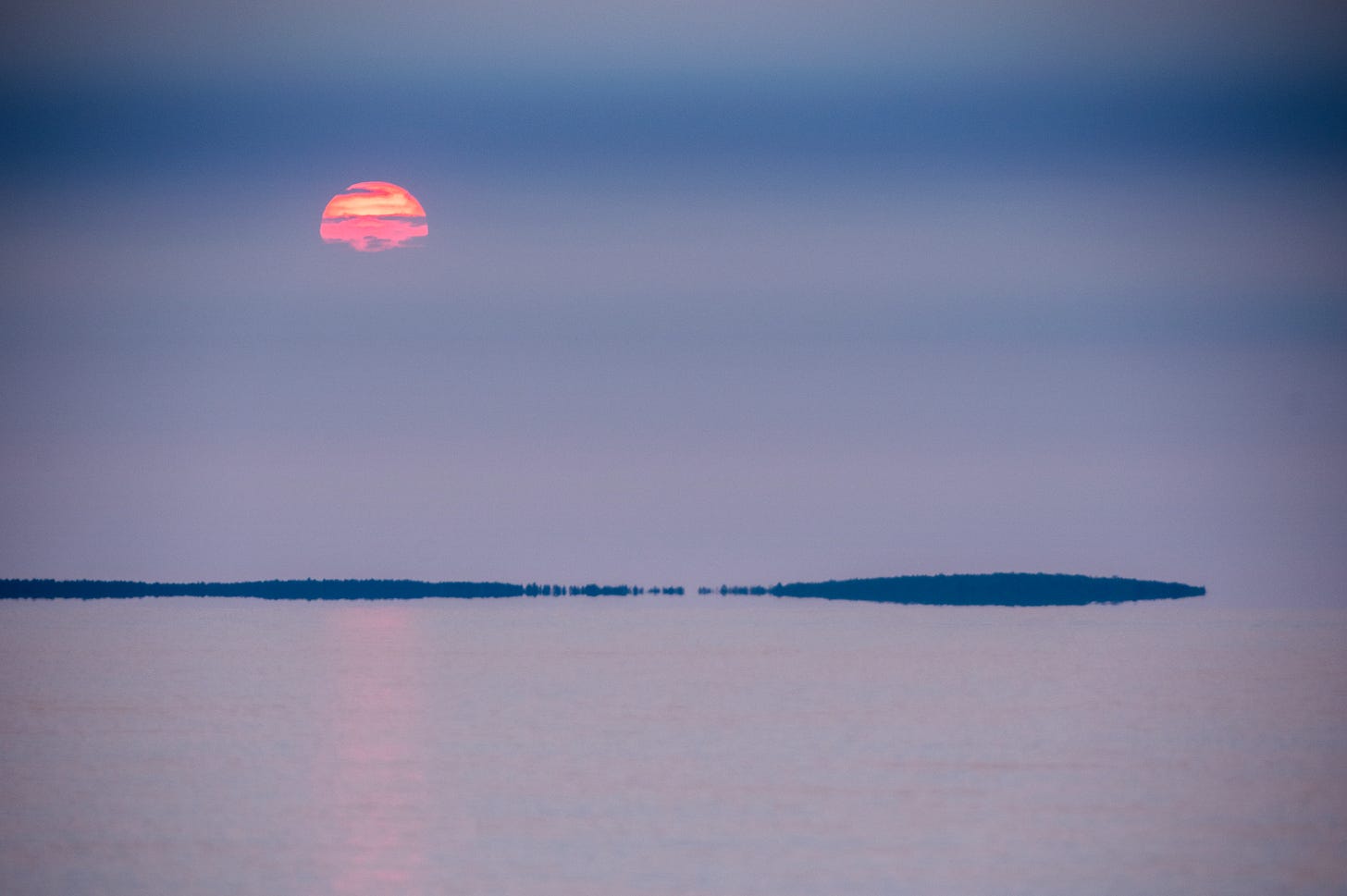
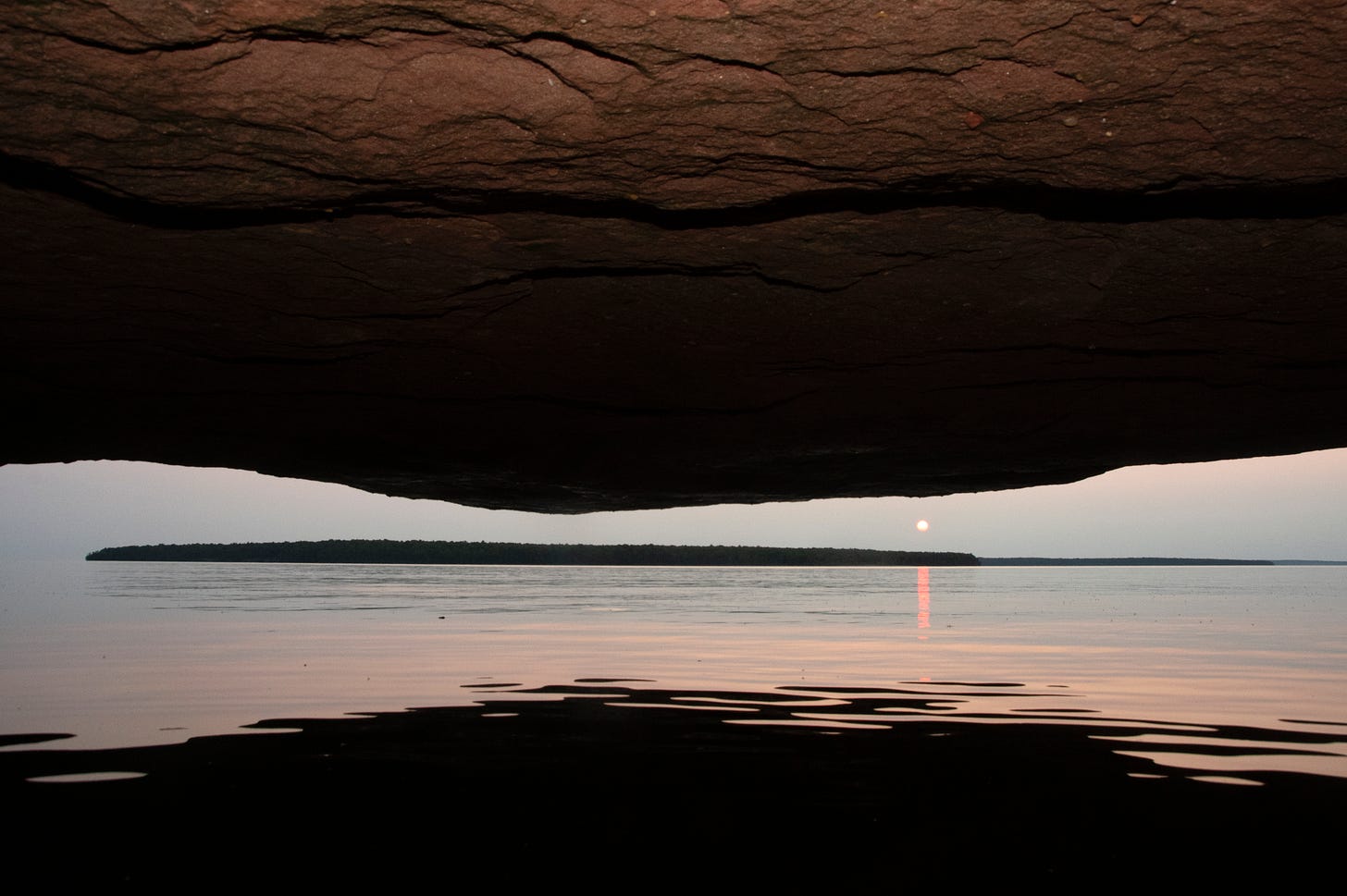
Well, Jeff, I have finally taken the vast $5/month leap to subscribe to your beautiful and thoughtful blog. Sometimes it seems like I am subscribed to so many things my mind boggles, and I have resisted blogs for a long time—but I could resist your blog no longer. Your wide-ranging commentary, beautiful writing and inspiring photos has put the Apostle Is on my wanna go list (the really wanna go list). I appreciate your writings on the environment and govt. too. Hope the fires are contained soon so we can all breathe more easily (I’m expecting some impact in the Boston area in a few days). Best to you and the Little Dipper.
What a beautiful offering and important message — both your words and your photography. Thank you, Jeff.